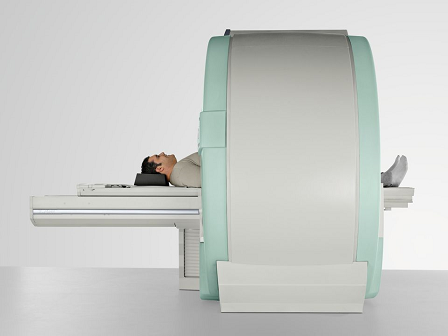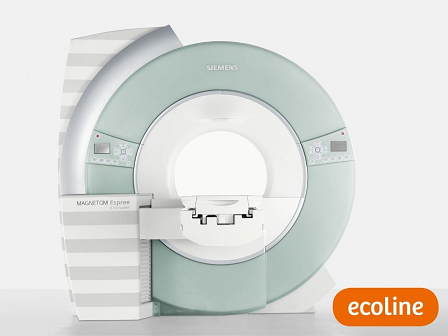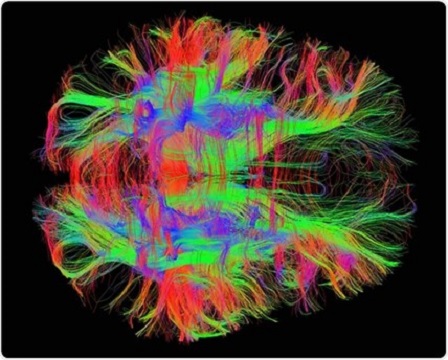Frequently Asked Questions
Below you will find answers to some of the most frequently asked questions at Advantage MRI. We are constantly adding most asked question to this page so if you have a question and do not see your answer, do not hesitate to call us.
Magnetic Resonance Imaging (MRI) uses a magnetic field and radio waves instead of X-Ray to display many parts of the body, especially the brain, spine and joints.
Our wide bore MRI has an open style; most exams are head-out or feet-first, so you can see and talk to our staff during the exam. That means a more pleasant experience for you.


Available in our Sacramento and Brea locations, Diffusion Tensor Imaging (DTI) allows direct in vivo examination of the brain microstructure, white matter tracts, and diffuse axonal injury after suspected Traumatic Brain Injury. DTI is superior to CT and MRI for characterizing Traumatic Brain Injury. With mild to moderate TBI, CTs and MRIs of the brain will often be reported as negative/normal. This does not necessarily mean that TBI has not occurred. This is where DTI plays an important role.
We will arrange for a DTI scan to be performed at a local TBI Imaging Associates-affiliated neuro-imaging facility. The study will then be interpreted by TBI Imaging Associates' own specialist Neuroradiologist, who is amongst the nation's leaders in TBI imaging and DTI expert witness work. A detailed report will be issued, either refuting or confirming Traumatic Brain Injury, and characterizing the areas of the brain that are affected.
Symptoms of Traumatic Brain Injury (TBI) that would likely be demonstrable on DTI imaging:
- Positive/abnormal CT scan after trauma
- Loss of consciousness
- Memory loss and/or concentration problems
- Depression and/or anxiety
- Personality changes, bursts of anger, or other mood swings
- Difficulty in planning or other abnormalities with thought processes
- Speech abnormalities
- Difficulty in going to sleep, staying asleep, or excessive sleepiness

You'll be asked to remove eyeglasses, watch, jewelry, credit cards, dentures, hearing aids, wigs (removable hair extensions) and any other metallic objects you are carrying.
Then, the technologist will help you lie down on a cushioned table. A device called a 'coil' will be placed over or under you. It helps the MRI system create a clear picture of your body. When you are comfortably positioned, the table will move under the magnet. The technologist will then step into the control area, while staying in constant contact with you both visually and through an intercom. As the exam proceeds, you will hear a muffled thumping sound for several minutes at a time. A headset and your choice of music will be provided for the duration of the exam. Relax and try to lie as still as possible. Any movement during this time will blur the picture. When the exam is done, the technologist will help you off the table.
No special preparation is needed. Eat normally and take medication as usual, unless your doctor has given you other instructions. You may find it easier to relax if you avoid drinking coffee or other caffeinated beverages before the exam.
Magnetic resonance imaging is very safe. There are no health risks associated with the magnetic field or the radio waves used by the machine.
However, some special circumstances limit the use of magnetic field, so it is important for you to tell us if any of the following apply to you or someone accompanying you into the exam room:
- Cardiac pacemaker or artificial heart valve
- Metal plate, pin or other metallic implant
- Intrauterine device, such as Copper-7 IUD
- Insulin pump or other infusion pump
- Aneurysm clips
- Previous gun wound
- Inner ear implant
- Ever been a metal worker (had metal in eye)
- Permanent (tattoo) eyeliner
Any metallic substance on your person can affect the quality of the diagnostic images. It can also cause discomfort or injury to you when placed in the magnetic field, and may exclude you from the exam.
In most cases an MRI exam does not require any injections. In some situations, however, a substance known as a contrast agent may be needed to enhance the ability of the MRI to see into your body. All contrast agents are FDA-approved and are considered safe.
Very anxious patients and small children may opt for sedation to help them relax and lie still during the exam. If you think you will require a sedative, you will need to obtain this from your doctor. You will need someone to drive you home.
